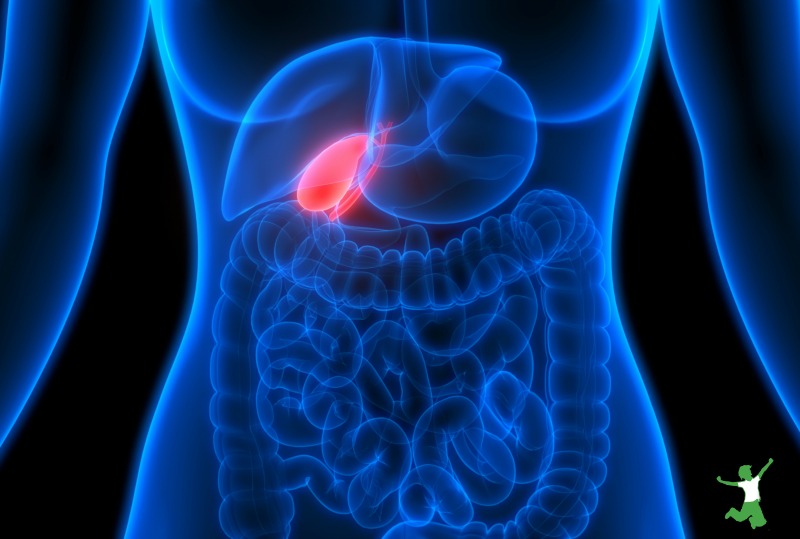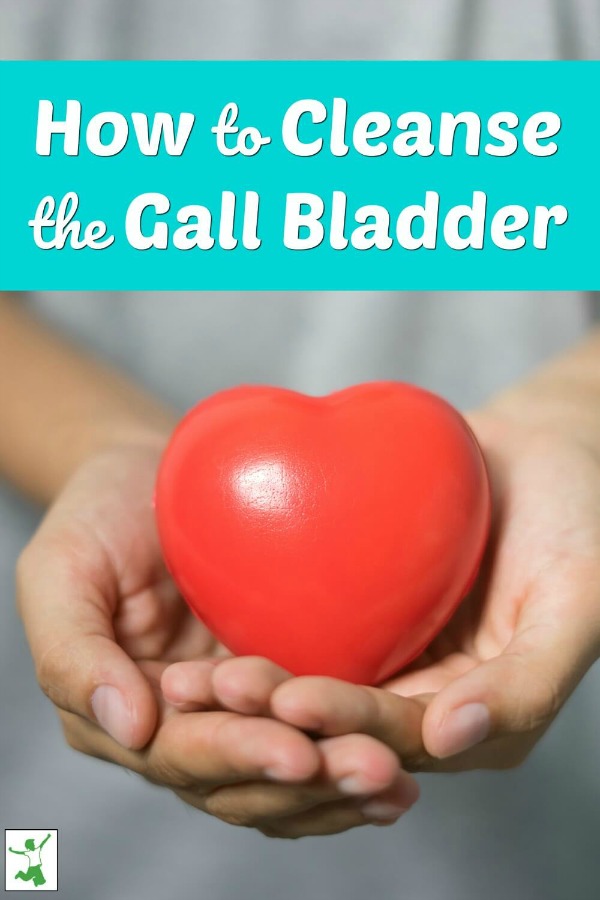Table of Contents[Hide][Show]

It is shocking how many people are suffering from gallbladder problems today. While the typical patient dealing with gallbladder issues used to be a woman in her 40’s who is struggling with her weight, this is not the stereotypical case anymore.
Young children, mostly girls, are having gallbladder attacks with increasing frequency and ending up in the emergency room for treatment.
In the past month alone, I have heard of two cases in my local community of teenage girls having serious gallbladder problems, one of whom, a fifteen year old, who had hers removed.
According to an interview of Dr. Atena Rosak of St. Joseph’s Medical Center in Maryland who performs many gallbladder surgeries, more and more young people — especially young women — are coming under her knife.
Hospital officials where Dr. Rosak practices agree. The percentage of people aged 30 or younger among all patients having their gallbladders removed at St. Joseph increased from 12.5 percent in fiscal year 2007 to 16.3 percent in the first 10 months of the following fiscal year. That’s a 30 percent growth in the proportion of young people in the mix in less than a year.
What is the Gallbladder?
The gallbladder is a thumb-sized organ nestled in the liver where bile is stored and concentrated. The gallbladder releases bile produced by the liver into the small intestine where it is used for proper digestion and absorption of dietary fats.
While humans can live without a gallbladder, surgical removal, called a cholecystectomy, can cause challenges consuming fats from that point forward. Since the consumption of healthy fats is so key to health, preserving this tiny organ and keeping it functional is very important!
Obviously, fats can still be consumed after gallbladder surgery as the liver continues to produce bile, but with no place to store and concentrate the bile, fats become a much trickier process to handle in the diet without suffering from moderate to severe discomfort.
Certainly, if one can avoid having a cholecystectomy in the first place with a simple gallbladder cleanse, so much the better.
What Causes Gallbladder Disease?
As many as 25 million Americans are estimated to suffer from gallbladder disease, with more than a half-million having their gallbladders removed each year.
The most common thing that goes wrong with the gallbladder is the development of gallstones.
There are two types of gallstones: cholesterol stones and pigment stones.
Approximately 80% of stones are cholesterol stones which are caused by too much cholesterol or bilirubin (a component of bile), not enough bile salts, or improper emptying of the gallbladder. The cause of pigment stones is unknown but they tend to form in those with liver disease or blood disorders.
“Roughly 20 percent of the people walking around out there have gallstones. They’re a fairly common occurrence,” said Dr. Richard A. Mackey, a biliary and pancreatic surgeon at St. Joseph Medical Center.
Gallstones can continue to grow over time and eventually cause irritation to the gallbladder itself. Sometimes, the gallstones move into the bile duct causing pain or blockage. Pain, nausea, and fever are the most common symptoms. Partial or complete blockage can also cause swelling, infection, and the need for emergency surgery.
While the causes of gallbladder disease aren’t entirely clear, poor diet, excess calcium, and estrogenic foods seem to be involved.
Best Cleanse to Flush Gallstones
If gallbladder problems are occurring in your household or if you are having problems consuming fats, consideration of a liver and gallbladder cleanse may be in order.
Andreas Moritz in his book The Liver and Gallbladder Miracle Cleanse, suggests that ridding the body of substances that “clog up the body’s cleansing organs creating a toxic environment” is a wise practice for maintaining good health. He provides simple step-by-step instructions on performing a gall bladder cleanse. Dr. David Williams also details the process on his website.
While a gallbladder cleanse is simple to do, you should check with your preferably holistic practitioner first if you have a history of gallbladder problems to make sure you don’t have a large calcified stone that is too large to pass out of the bile duct.
A good friend of mine did a gallbladder cleanse over 10 years ago when he had a gall bladder attack and was told he needed surgery. The gall stones came out during the flush, his symptoms resolved and he never did have to have the surgery! Given the risks of surgery and potential complications post-op, such a simple procedure certainly seems worth a shot, wouldn’t you agree?
Already Had Surgery?
If the gall bladder cleanse fails to provide enough relief to avoid surgery, know that you can still eat fats afterward.
This article on eating fat after gallbladder surgery outlines the process for retraining the body to produce bile at mealtimes so that you can consume healthy fats without risk to health post-op.

References
More Young Women Seem to be Suffering from Gallbladder Disease
My Liver Cleanse Miracle Experience
More Information








I haven’t tried to flush my gallstones but I have started to eat radishes every day. My doctor suggested gallbladder removal but I didn’t want my gallbladder removed. The radish stuff seems to be effective because my last gallbladder attack was 2 months ago and I eat heavy foods again.
I have gallstones and am terrified of them blocking duct or bursting gallbladder. I have pain in and off. Dr wants to do surgery, I don’t want too! I’m scared. Don’t know how many stones or what type, had Ct scan and ultrasound, they did not report this to me. I’m so frustrated.
I do not tolerate any citrus. Even a bit of lemon juice in a sauce or dressing can ruin my energy levels and my day. I cannot even have a cup of Earl Gray tea (what makes it Earl Gray is bergamot – a little orange).
Is that a substitute for the lemon/grapefruit juice in this protocol? I wonder about using Apple Cider Vinegar in place of the citrus here. That is my go-to for replacements in recipes.
I am also concerned about the olive oil. I stopped consuming it years ago since I noticed not feeling well after consuming it. Now I understand more about the freshness factor and the unscrupulous mixing of inferior oils while labels state 100% olive oil. I have not tested out a locally grown and processed variety yet. I have been quite happy with coconut oil and varieties of nut oils or avocado oil instead.
Is there another oil that would be effective in this protocol?
yes–i also want to know if i can use coconut oil . i did a liver flush years ago; i now cannot eat olive oil unless it is cleverly disguised and under a tsp. OR is there another oil–anything but olive.
Jusr be careful! I had no history of any gallbladder or GI problems until one day I went to the ER with excruciating upper abdominal pain and vomiting that came out of nowhere. A CT scan showed 2 golf-ball size stones, inflammation and my GB was at less then 5% function. Needless to say, I underwent emergency surgery and had it removed. My amylase and lipase were slightly elevated and had I gone more than a few days I would have developed pancreatitis and liver issues in addition to a ruptured GB causing infection and/or sepsis. My body does not miss the GB at all. I have no troubles digesting anything! Even the *crap* that I occasionally eat.
I have read that one should do a parasite cleanse, then a kidney cleanse, then a gallbladder cleanse, then a liver cleanse, in that order; and that not to do all of these invites more problems due to the organs/parasites that haven’t been cleansed.
Any thoughts?
So how is it possible to know if you have large calcified stones and should not do the cleanse? I have Andreas’ book and planned to do the cleanse soon but now I am wondering if I should. In the past, I have taken lots of calcium supplements because my midwife said pg women need them. Now I realize what calcium supplements do to the body. My mom had her gallbladder removed, and I have symptoms now in my 30s and would like to prevent surgery later . . .if possible. Would you recommend the cleanse for me?
I think only a scan (ultrasound preferrably, over a CT scan) can tell you the size of your stones if you have any. Otherwise I don’t think there is any way to. Good luck.
Hi! Can you do this cleanse while breastfeeding? I have had chronic digestive problems for years and rely completely on enzymes and hydrozyme at every meal. After taking lots of IBuprofin and Tylenol post pardum, my maldigestion has gotten worse. I would love to do this cleanse!
No cleanses are a good idea while pregnant or breastfeeding.
I had gall bladder attacks during my last pregnancy and for 6 months after. Then it stopped. But I still experience a huge amount of bloating. Would you think this cleanse would help me? Thanks!
I have had success with a recipe that dissolves either gall or kidney stones in four days using essential oils. After the first day, the pain is gone. On the fourth day, you pass the stones or they have dissolved. It has been a godsend to a number of people so I know it works.
So, where can we find this recipe?
Frankie can you tell us what oils you used?
Hi Sarah. I’ve been a fan for years. Your “fat” book changed my life! My husband was diagnosed with gout today. He has never been interested in healthy like me though he’s happy to eat my Weston Price meals with gusto. Anyway, he’s in a lot of pain. We thought his shoes were too tight! I’m not sure where to start. What would you do?
Hi Kate. My husband has also experienced the pain of gout. I made him stop drinking beer and eating crap when out of the home. At home we eat a WAPF diet. He took a dessertspoon of black cherry concentrate twice daily and it resolved his issues. Hope it works for your husband too!